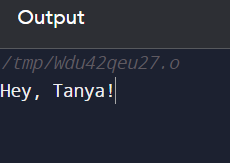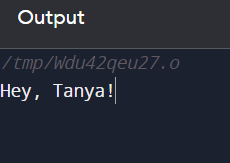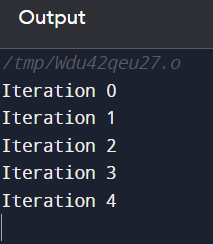Why semicolon is used in c
In the phase of programming languages, C language serves as the best foundation and services for so many modern and new technologies out there. One of the most common and intriguing part of the C language is the frequent use of the semicolon. It appears to be a humble punctuation mark that helps but has its own capabilities and importance when it comes to the world of programming.
In this tutorial, we will basically analyse the role of semicolon in C language and see why it is used and its importance and the overall structure of the programs.
End of a statement
The most important task of a semicolon is to point out that a statement has marked its end. It signifies the conclusion of a statement. In C or any other language, statements are basically the building blocks of any program that help us to form the overall program. It also helps us execute the overall program. It basically acts as a separator to conclude where one statement has concluded and where the next one is beginning. Without this element, the compiler would struggle terribly and would not know how to distinguish between different statements in the program which will give rise to a lot of problems leading to code ambiguity and syntax errors.
Example 1:
#include <stdio.h>
int main() {
printf("Hey, ");
printf("Tanya!");
return 0;
}
Output:

In the above example, we can clearly see that after every printf statement, there comes a semicolon which signifies the end of one statement and the beginning of another. This clarity of the syntax is so important for the compiler to basically observe the intentions and instructions of the developer and execute the code accordingly.
Too many statements in a single line
C language provides a unique capability where programmers can write multiple codes and have them separated by semicolons. This feature is basically useful and give rise to the code compactness and comes handy in situations where we are short of time or need to use exact and concise statements. However, we should make sure that this feature should be used with caution as if we use it too much, it can give rise to uncertainty in the code and can also impact the code readability.
Example 2:
#include <stdio.h>
int main() {
printf("Hey, "); printf("Tanya!"); return 0;
}
Output:

Even though, it can be used and allowed in the programming world, but the use of this pattern is prohibited due to its impact on the code readability. It can severely impact the code’s performance. It is basically used just to showcase the flexibility semicolon can provide and write multiple statements on a single line.
Empty statements
C language allows the existence of the empty or vacant statements, we can just place a semicolon there and expect to have our code executed. They are primarily used in the places where loops are present. They have their own set of use cases specially they are used when there is no action required.
Example 3:
#include <stdio.h>
int main() {
int i;
for (i = 0; i < 5; i++) {
printf("Iteration %d\n", i);
;
}
return 0;
}
Output:

In the above stated example, the empty statement usually acts as a placeholder for the program signifying that no additional statement or action is required at that point of time in the program. It is not a common practice but its important to understand the role of semicolon in the empty statements as well.
Conclusion
In the world of programming, semicolon appears to be the modest yet indispensable element. It’s key role in the world full of objects and methods helps the compiler to distinguish between different lines and hence eliminate errors and produce unambiguous code. It doesn’t matter where it is used, whether it’s being used to separate multiple line statements, or denote empty statements or simply as a statement terminator, it appears to be a silent protagonist in the world of c programming narrative. Understanding the importance of semicolon in C is not merely a matter of syntax, rather it’s a key to fully understand the language. As developers explore the world of programming, semicolon becomes a helpful friend that travels and makes sure that their code remains clear and accurate.